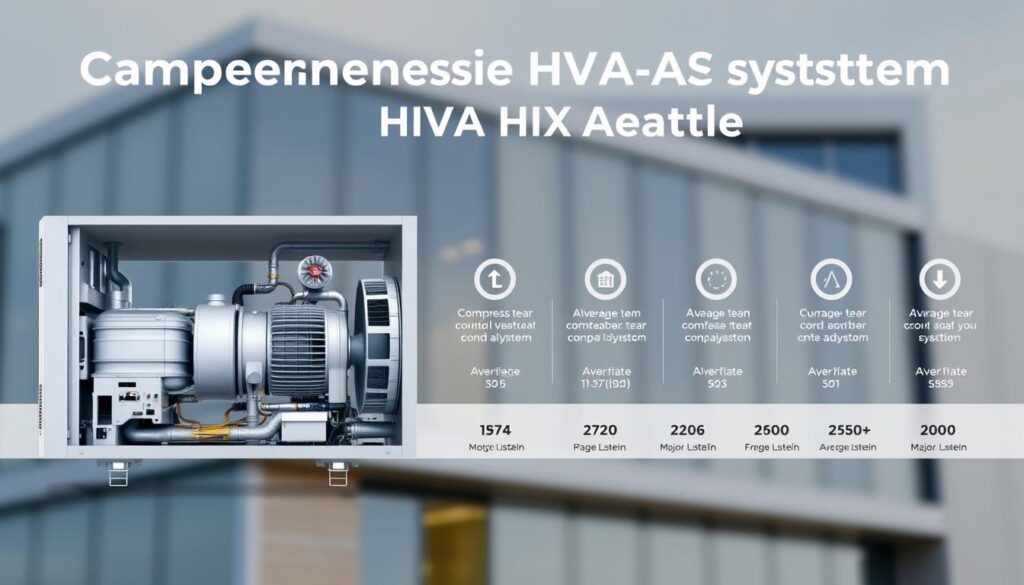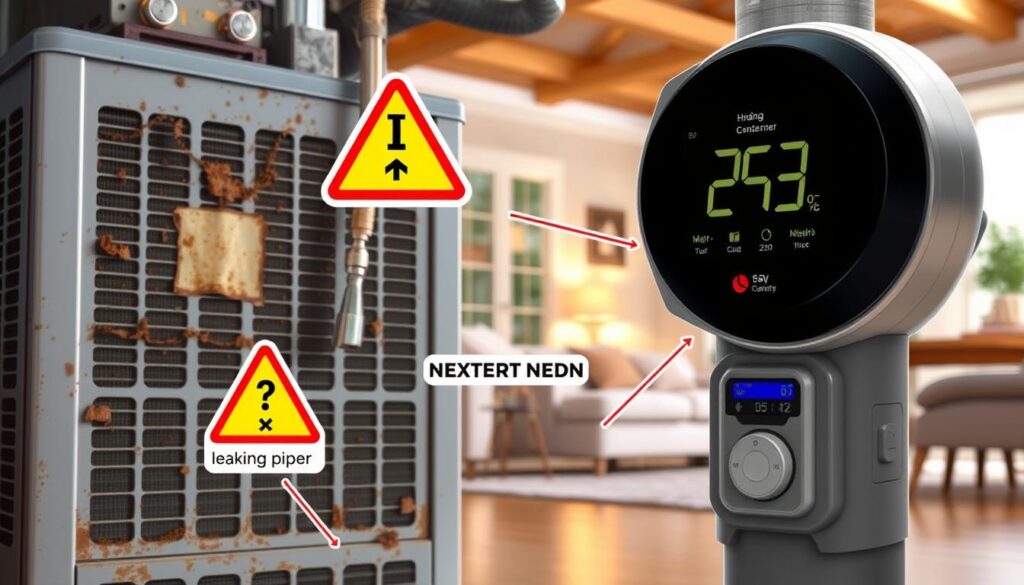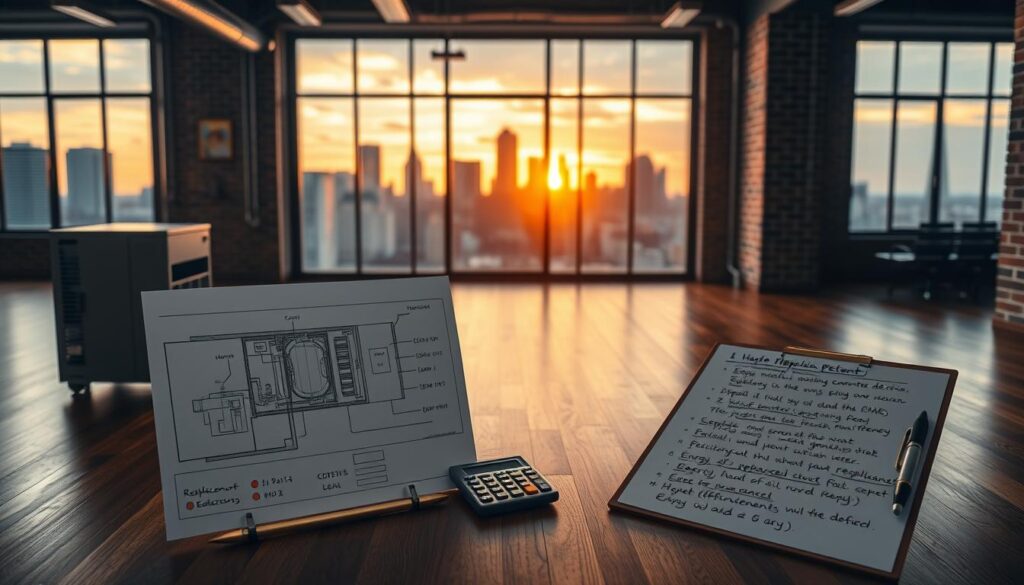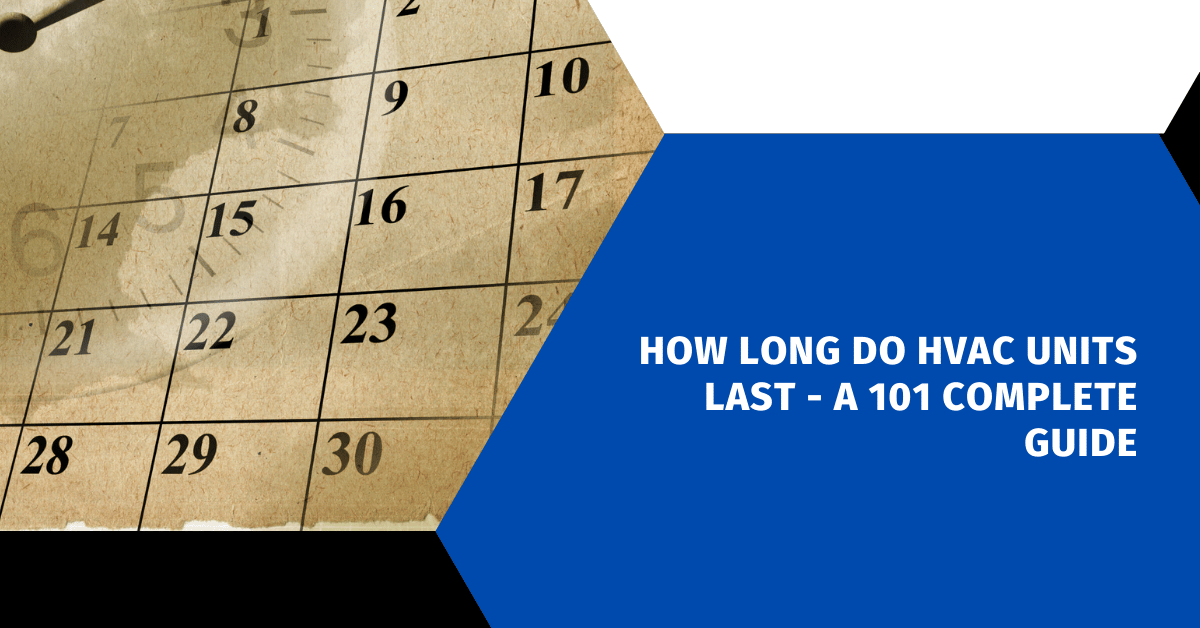Affiliate Disclosure
HVAC Guide Guys is a participant in the Amazon Services LLC Associates Program, an affiliate advertising program designed to provide a means for sites to earn advertising fees by advertising and linking to Amazon.
How Long Do HVAC Units Last? Ever wondered why some HVAC systems last forever while others fail early? Knowing how long HVAC units last can save you a lot of money. It helps you make better choices for your home’s comfort.

Your HVAC system is a big investment in your home’s comfort. On average, it lasts 15 to 20 years with good care. It’s not just about numbers; it’s about smart home management.
Today’s homeowners want their HVAC systems to work well and last long. By knowing what affects your system’s life, you can make smart choices. This protects your investment and keeps your home comfortable.
Key Takeaways
- HVAC systems typically last 15-20 years with proper maintenance
- Regular service can significantly extend system longevity
- Different HVAC components have varying life expectancies
- Annual professional inspections are key for system health
- Environmental factors impact HVAC performance and lifespan
Table of Contents
Understanding HVAC Systems and Their Components
Your home’s HVAC system is a complex network of components working together to maintain comfort and air quality. Knowing these systems helps you make informed decisions about when to replace your HVAC and how long it will last.
Modern HVAC systems come in various types, each designed to meet different heating and cooling needs. The right system can significantly impact your home’s comfort and energy efficiency.
Types of HVAC Systems
- Central Air Conditioning Systems
- Heat Pumps
- Furnace and Boiler Systems
- Ductless Mini-Split Systems
- Geothermal Heat Pumps
Essential Components of Modern HVAC Units
| Component | Function | Average Lifespan |
|---|---|---|
| Compressor | Circulates refrigerant | 10-15 years |
| Evaporator Coil | Absorbs indoor heat | 12-15 years |
| Condenser Unit | Releases outdoor heat | 10-15 years |
| Air Handler | Moves conditioned air | 15-20 years |
How HVAC Systems Work Together
Your HVAC system operates as an integrated unit. The thermostat signals the system, triggering components to heat or cool your home. Proper maintenance ensures smooth interaction between these parts, extending the system’s overall longevity.
“Understanding your HVAC system is the first step to maximizing its performance and lifespan.” – HVAC Expert
Regular maintenance can prevent unexpected breakdowns and optimize your system’s efficiency. By investing time in understanding your HVAC components, you’ll be better equipped to manage its performance and plan for any replacements.
Explore Our HVAC Shop
Looking for top-rated HVAC tools, parts, and accessories? Visit our shop and find the perfect solution for your needs.
Visit the ShopAverage Lifespan of Different HVAC Components
Knowing how long your HVAC parts last is key to keeping your system running well. Each part of your heating and cooling system has its own lifespan. This info helps you plan for when you might need to replace or maintain them.
Here’s a breakdown of typical lifespans for key HVAC components:
- Furnaces: 15-20 years with proper maintenance
- Air Conditioners: 15-20 years (10-12 years in coastal areas)
- Heat Pumps: 10-20 years (average of 15 years)
- Boilers: 20-35 years depending on type and maintenance
- Ductless Mini-Splits: 10-30 years
Several key factors affect how long your HVAC system lasts. The most important ones are:
- Regular maintenance
- Quality of initial installation
- Local climate conditions
- How often you use it
- System sizing and design
Proper care can make your HVAC system last longer. Getting annual professional checks, changing filters often, and fixing small issues quickly can prevent big problems. This saves you money on expensive repairs or new systems.
Investing in routine maintenance is far more cost-effective than unexpected emergency replacements.
Explore Our HVAC Shop
Looking for top-rated HVAC tools, parts, and accessories? Visit our shop and find the perfect solution for your needs.
Visit the ShopHow Long Do HVAC Units Last
Knowing how long your HVAC system lasts is key for keeping your home in top shape and planning your budget. Your HVAC unit replacement guide will guide you through the lifespan of your system. It also helps you spot when your HVAC equipment is getting old.
Factors Affecting HVAC Longevity
Several things can affect how long your HVAC system works for your home. Important factors include:
- Quality of initial installation
- Regular maintenance frequency
- Local climate conditions
- Usage patterns
- Home insulation quality
Expected Lifespans by Unit Type
| HVAC Unit Type | Average Lifespan |
|---|---|
| Residential Single-Home Unit | 15-20 years |
| Window AC Unit | 10-15 years |
| Heat Pumps | 15-25 years |
| Gas Furnaces | 20-30 years |
| Thermostats | 10 years |
Impact of Climate and Usage Patterns
Your local weather greatly affects how long your HVAC system lasts. Extreme temperatures and high humidity can make it wear out faster. Homes in very cold or very hot areas might need to replace their systems sooner than those in milder climates.
Regular upkeep and smart use can make your HVAC system last longer. Get professional checks every year. Also, use energy-saving tips to keep your unit running well and lasting longer.
Signs Your HVAC System Needs Replacement

Knowing when your HVAC system is nearing the end can prevent sudden failures and expensive fixes. It’s important for homeowners to recognize the signs of system wear. This knowledge helps in making smart choices about HVAC maintenance.
Here are the most critical warning signs that indicate your HVAC unit might need replacement:
- Age of the System: HVAC units usually last 10-15 years. If your system is getting close to or has passed this age, it might be time for a new one.
- Frequent and Expensive Repairs: If repair costs are almost as much as a new system, it’s more cost-effective to replace it.
- Inconsistent Temperature Distribution: If your home heats or cools unevenly, it means your system isn’t working right.
- Rising Energy Bills: A sudden jump in energy use can mean your system is not as efficient as it used to be.
Specific red flags that demand immediate attention include:
- Strange noises like grinding, banging, or squealing
- Persistent musty or burning odors
- Visible moisture or leaks around the unit
- Poor air quality with increased dust or allergens
“An inefficient HVAC system can cost you up to 30% more in energy expenses compared to a modern, well-maintained unit.”
Replacing your HVAC system before it fails can save you money and energy in the long run. By watching for these signs and talking to HVAC experts, you can decide when to replace your system wisely.
Explore Our HVAC Shop
Looking for top-rated HVAC tools, parts, and accessories? Visit our shop and find the perfect solution for your needs.
Visit the ShopMaintenance Tips to Extend HVAC Lifespan
Keeping your HVAC system in good shape is key to making it last longer and work better. Regular upkeep can greatly extend your system’s life and efficiency. This can save you a lot of money on new systems.
Good HVAC maintenance is more than just fixing problems. A smart maintenance plan helps your system run well for many years.
Creating a Regular Maintenance Schedule
Having a regular maintenance plan is vital for your HVAC’s best performance. Here are important steps to keep your system in great shape:
- Change air filters every 1-3 months
- Clean vents and registers every quarter
- Get professional inspections once a year
- Keep outdoor units free from debris
DIY Maintenance Tasks
Homeowners can do many things to help their HVAC system stay healthy:
- Check and replace air filters for better airflow
- Look for and remove debris from outdoor units
- Clean air vents and return registers
- Make sure ductwork is well-insulated
Professional Service Requirements
While DIY tasks are helpful, professional services are essential. Certified technicians can:
- Do detailed system checks
- Lubricate moving parts
- Check electrical connections
- Check refrigerant levels
Regular maintenance can make your HVAC system last up to 5 years longer and work more efficiently.
By following these maintenance tips, you’ll get the most out of your HVAC system. You’ll also save on energy costs and might avoid expensive replacements.
The Cost Factor: Repair vs. Replace

Choosing between repairing or replacing your HVAC system is tough. The HVAC unit replacement guide advises a careful look at your system’s state and cost-effectiveness.
The “$5,000 rule” is a helpful strategy for deciding on HVAC replacement. It involves multiplying your equipment’s age by the repair cost. If this total is over $5,000, it’s likely cheaper to replace than to keep fixing it.
| System Age | Remaining Value | Replacement Recommendation |
|---|---|---|
| 9 years | $3,500 | Consider repairs |
| 12 years | $2,336 | Evaluate replacement |
| 15 years | $1,172 | Strong replacement recommendation |
When planning your hvac replacement timeline, keep these points in mind:
- How often you need repairs
- Your current system’s efficiency
- The savings on energy costs
- The age of your current equipment
Experts say replace when repair costs are more than 50% of a new system’s price. Your long-term savings often outweigh the short-term costs of repairs.
Getting a new HVAC system can cut your energy bills and give you more reliable comfort at home.
Getting a professional’s opinion is key to making the best choice for your home and budget.
Explore Our HVAC Shop
Looking for top-rated HVAC tools, parts, and accessories? Visit our shop and find the perfect solution for your needs.
Visit the ShopEnergy Efficiency and Modern HVAC Systems
Modern HVAC technology is changing how we keep our homes comfortable and manage energy. It’s not just about keeping your home cool or warm anymore. It’s about using the latest innovations to make your home more energy-efficient.
The way we heat and cool our homes has changed a lot in recent years. Today’s HVAC systems do more than just control the temperature. They are smart and efficient, helping you save money on your energy bills.
Latest Technology Advancements
New technologies have made HVAC systems last longer. Some of the key advancements include:
- Smart thermostats with AI-driven learning capabilities
- Variable-speed compressor systems
- Integrated zoning technologies
- Heat pump systems with superior energy efficiency
Energy Savings
Electric air-source heat pumps now use up to 1/3 less energy than older systems. The minimum SEER rating has also gone up to 13. This is a big improvement in efficiency.
Environmental Impact
Choosing a new HVAC system is good for your home and the planet. These systems use cleaner refrigerants and use less energy. This means they help reduce your carbon footprint.
Investing in an energy-efficient HVAC system is an investment in both your home’s comfort and the planet’s future.
Many utility companies offer big rebates for energy-efficient upgrades. New laws also give tax credits for HVAC upgrades. This makes it easier and more affordable to make your home more energy-efficient.
Conclusion
Knowing how long HVAC units last is key for homeowners. They want to keep their homes comfy and efficient. Most HVAC systems last 15 to 20 years. But, this can change based on how well you take care of it, how often you use it, and your environment.
Regular maintenance is important to make your HVAC last longer. Get your system checked by a pro every year. Also, change filters every 1-3 months and fix small problems fast. This can help your system work better for longer.
Deciding to fix or replace your HVAC depends on a few things. Look at your energy bills, how often repairs are needed, and if your home heats or cools evenly. If your system is 15 years old and always breaking down, getting a new one might save you money. Making smart choices about your heating and cooling is important for your comfort and energy use.
With good care, your HVAC system can keep your home comfortable for years. Pay attention to your system’s needs and get professional help. This way, you can make your HVAC last longer and keep your family happy and comfortable.

